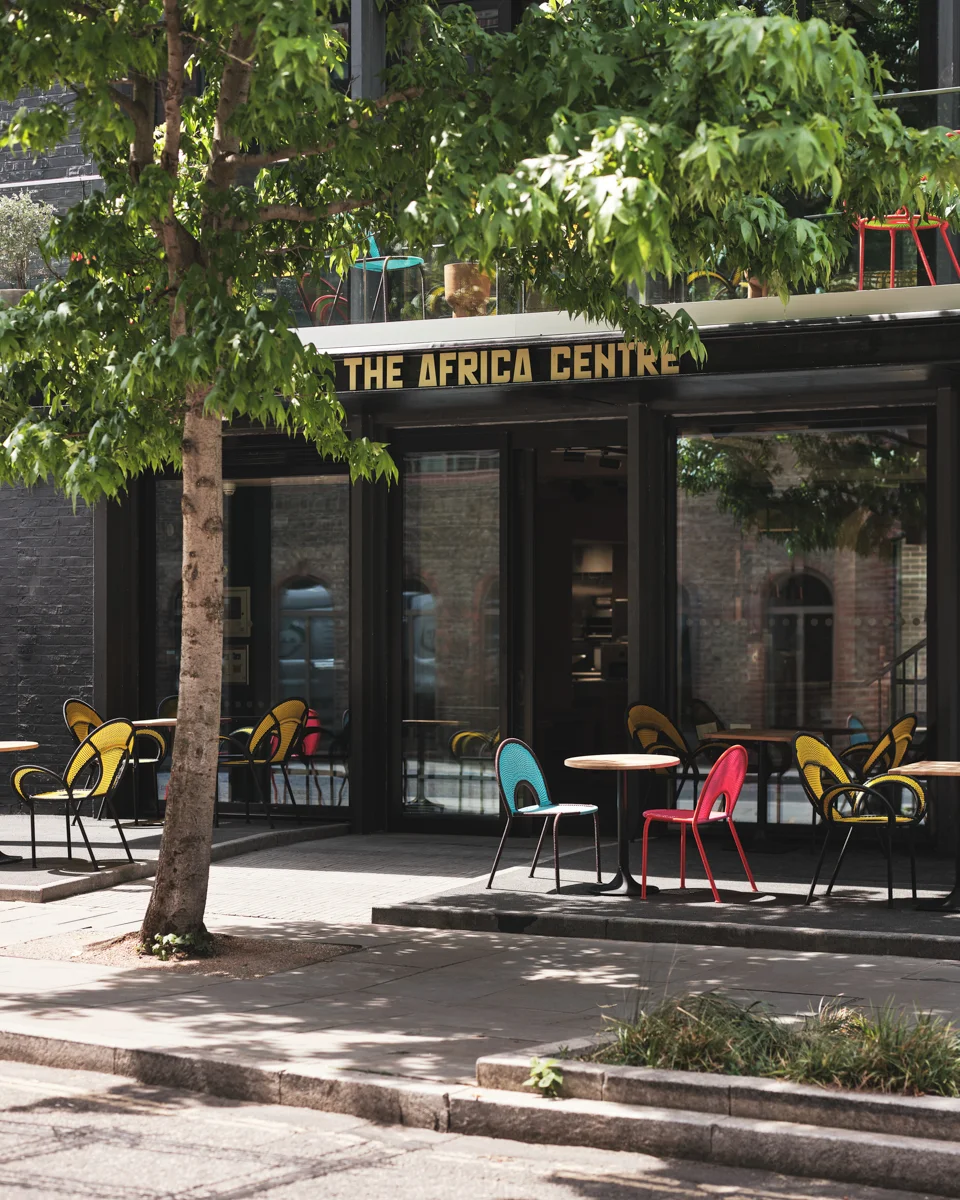London’s revitalized and reimagined Africa Centre, which opened in June, boasts a starkly Afro-futurist character: a black exterior accented with confident vermilions and golds, and a plush interior warm with the taupes and saffrons of the African landscape.
BY ALASTAIR HAGGER
THE MOST ENJOYABLE PERIOD WAS WHEN seeds were germinating,” wrote Kenneth Kaunda in his autobiography, fondly remembering life as a young man on the family farm. “All this meant real hard work, but it was all my own and I simply loved it.”
In 1964, the year he became Zambia’s first president, Kaunda opened The Africa Centre in London’s Covent Garden, described by regular patron Desmond Tutu as a hub of cultural activity for “all who are Africans, and all those who have a care for the interests of the continent and its people”.
Opened as a charity in an 18th-century building with a lease gifted by the Catholic Church, the Centre became an incubator for the propagation and exchange of intellectual and creative dynamism; together politicians, writers, and artists enjoyed fierce political debate alongside theater productions, parties, dancers and the best African food the capital had to offer.
The Centre blossomed over the decades, adapting symbiotically with its mother continent’s evolution like a hardy perennial. In the 1970s, the Centre became, in its own words, “a vital instrument for the multiple voices of liberation during the struggles for independence on the continent”.
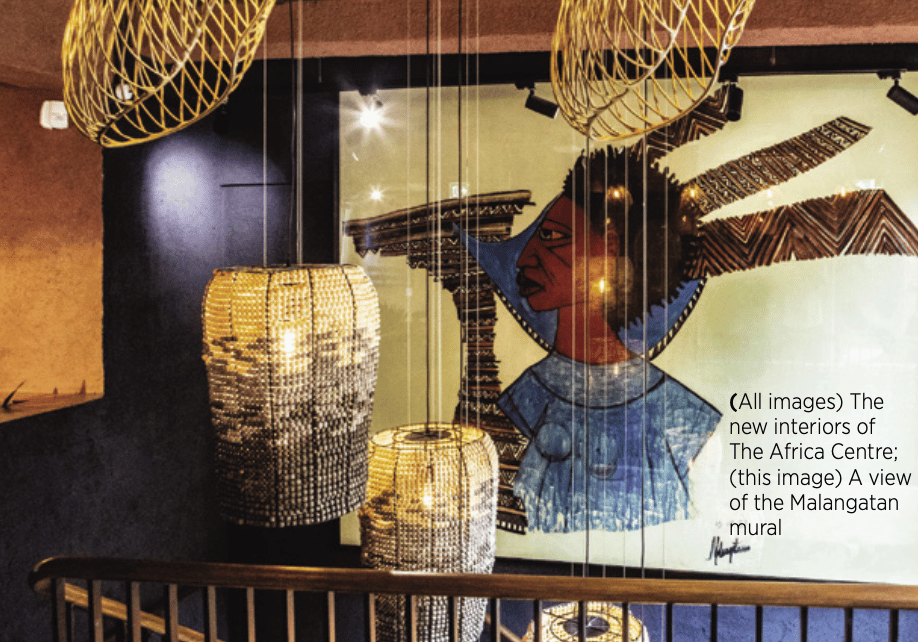
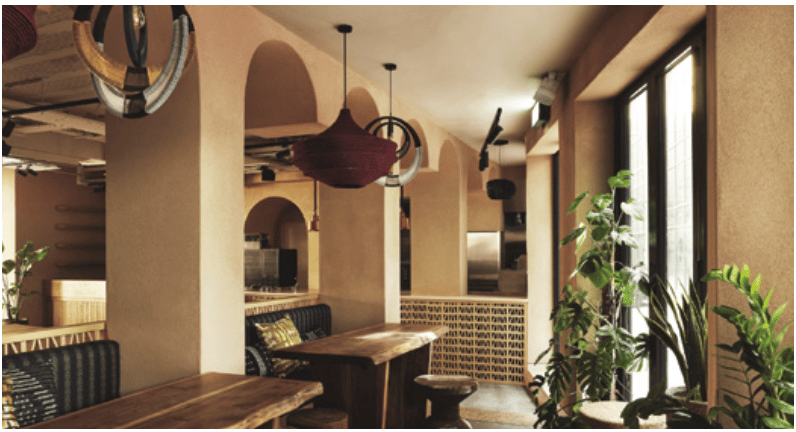
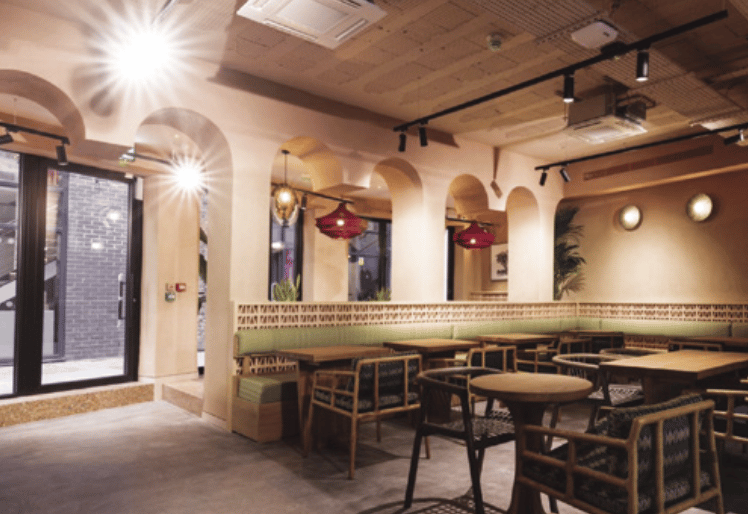
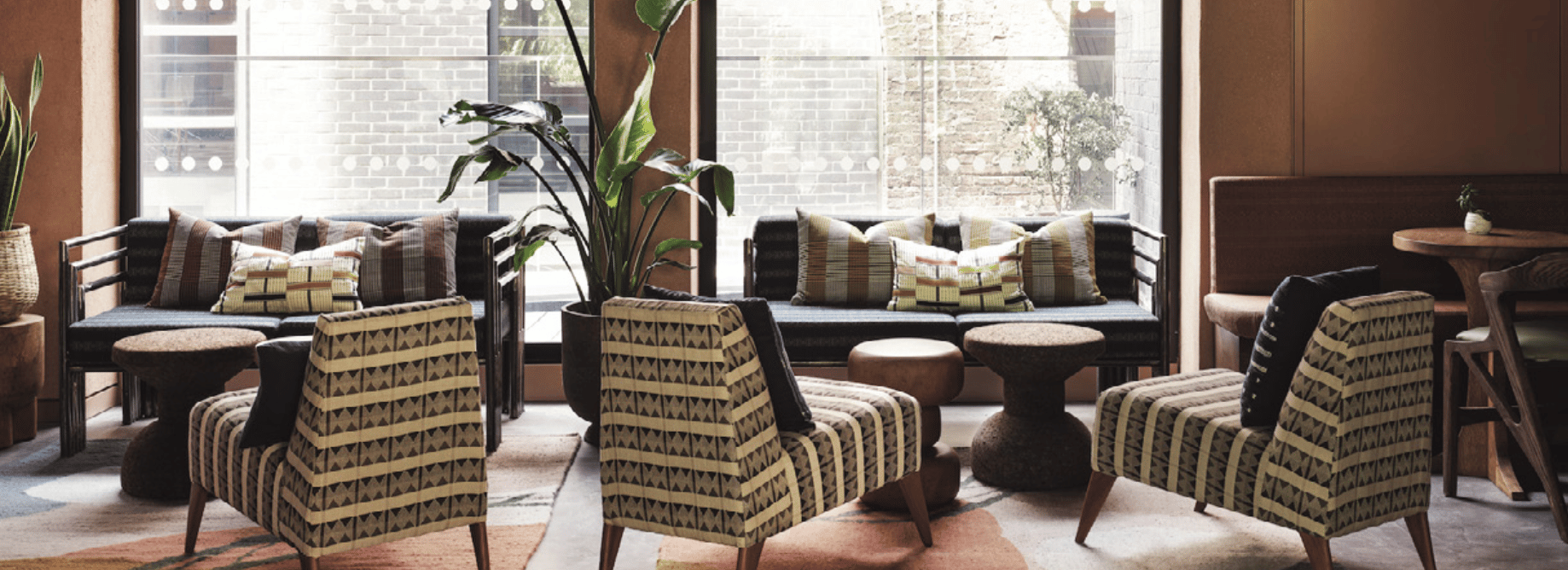
A decade later it was hosting titans of African music such as Youssou N’Dour, Angélique Kidjo and Salif Keita, and by the 1990s, it was reconfiguring its function in the wider eco-political environment “to promote cultural, economic and socio-political initiatives in Britain and the rest of Europe that assist in the development of Africa”.
It continued to flourish into the new century, but then came the drought: the wilderness decade which began with the Centre’s closure in 2013. “The idea was always to maintain a space that would serve the needs of the intended audience,” says Belvin Tawuya, Head of Digital and Marketing Communications at the Centre.
“But it was becoming expensive to maintain, so there were these conversations around renovation – and the costs associated – or just considering getting a new place altogether.”
The Covent Garden building lease was sold, and with additional funding from Arts Council England, the multi-million pound redevelopment of a new site in Southwark, in the African diaspora-rich south of the city, began in 2015.
The result, a revitalized and reimagined Centre which opened in June, boasting a starkly Afro-futurist character: a black exterior accented with confident vermilions and golds, and a plush interior warm with the taupes and saffrons of the African landscape.
“Ninety percent of the interior elements within the space we actually imported from different parts of Africa,” says Tawuya.
“A phenomenal designer, Tola Ojuolape, has really helped us in identifying incredible artisans from across the continent, and then thinking about how all that could be brought together to create a cohesive but authentic contemporary African interior space.”
The Centre is now a multi-purpose hub featuring a restaurant, event facilitation, a gallery, and a research and education space, which will eventually host live digital learning opportunities for students in Africa. Further development plans include refurbishing one of the
upper floors as an entrepreneurship nucleus “promoting innovation and ideas, specifically towards that business community looking to invest on the continent”.
Nearly six decades after this seed of hope, solidarity and community was first planted, has The Africa Centre’s self-identity, and its own understanding of its role in the community changed as manifestly as the continent itself?
“I think there’s now more awareness about the need to serve the local community, as much as we remain an organization with international reach,” Tawuya says. “How do we leverage our strength, one of the very few black-led organizations that has its own space, to support others? Particularly amongst the young audience, who might not know about the history of the Centre, but have their own passions now, their own dreams, who need the support and space to be able to express themselves and fulfil their goals and ambitions. We see ourselves taking that position going forward.”
